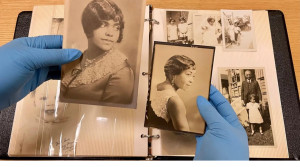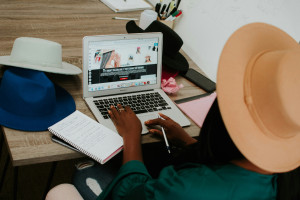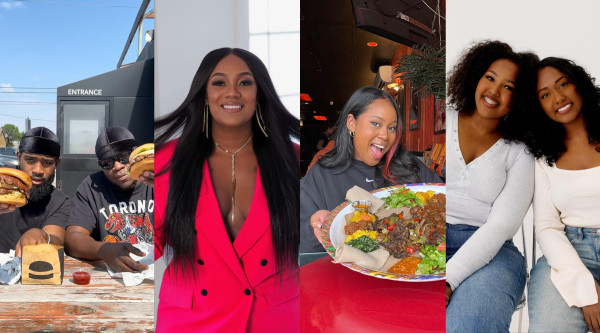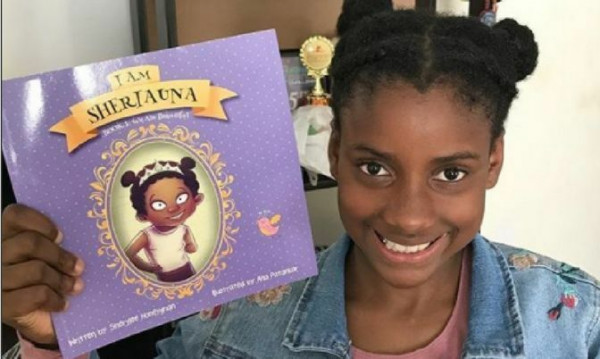Lindsay-Noel has built a platform online highlighting the realities of navigating life and the city in a wheelchair.
With over 150K followers on TikTok and Instagram, she rates Toronto venues, restaurants and spaces based on their accessibility.
“I’ve spent the last 15 years hopefully succeeding in showing there’s life after tragedy. I went back to high school. I went to Toronto Metropolitan University for Radio and Television Arts. I started a podcast which led to me starting my business Cup of Té and now I have a really great, awesome second job of being able to be a content creator, a disability and accessibility advocate on TikTok,” said Lindsay-Noel.
{https://www.tiktok.com/@accessbytay/video/7116262110178331910?lang=en}
She says a lack of representation for Black women with disabilities is what inspired her to start creating content and build an online community.
One of her most viral videos brings us along the journey as Lindsay-Noel attempts to attend a friend’s birthday dinner. She called ahead and confirmed that the restaurant was wheelchair-friendly only to be disappointed once she arrived – the entrance didn’t have a ramp and it was impossible for her to enter, causing the group to change their plans entirely.
{https://www.tiktok.com/@accessbytay/video/7311863607703244037?lang=en}
“A lot of people couldn’t believe it happened. How could a restaurant lie about accessibility? So often there’s the misconception that people in wheelchairs don’t like to go out and we like to stay home. If we are like that – it’s only because of the fear and frustrations that we encounter while going out and so I wanted to create a resource for people to have honest reviews and I want to show the world the implications of not getting it right and what we can do moving forward to make it better.”
Her experiences aren’t surprising considering a 2023 study found Canadian cities are lacking in accessibility for people with disabilities.
Another 2023 report found that Ontario’s state of accessibility is in "crisis,” and provided 23 recommendations to get the province back on track.
Although she’s empowered to speak up, it hasn’t always been easy for Lindsay-Noel, especially when factoring in the intersectionality of being a Black woman.
“Being Black, you already recognize that there’s certain bias and challenges as compared to our white counterparts but when you add on top of that a disability, it’s just another hurdle because people don’t want to acknowledge it and they don’t want to have these conversations or they’re scared to say anything or they don’t necessarily think that you belong in certain spaces so we have to continue to break down biases and work extra hard to prove that we’re worthy of taking up the same space.”
She says her confidence comes from the Black women who raised her and helped to shape her into the person she is today.
Her ability to speak her truth has landed her on the 2024 #BlackTikTok Visionary Voices List, a celebration highlighting the brilliance of Black TikTok and the impact of the Black creator community.
{https://www.tiktok.com/@accessbytay/video/7337401794663959813?lang=en}
“I hope that my platform helps to humanize my experience and show that other people who look like me and who are Black and disabled in a wheelchair – although it may not be many, deserve to take up space. We’re here, we’re hardworking, we’re entrepreneurs, and badass advocates.”
Although their conditions are drastically different, Lindsay-Noel’s story is one that Gabi De Leon can relate to.
Known as “Lil Gabi D” to her followers of over 36K, De Leon is a content creator using her platform to advocate for dwarfism awareness.
“I started making videos for fun but October is Dwarfism awareness month and one October, I made my videos only focus on dwarfism education and I realized it aligned with my goal of trying to bring more little people into media because there’s a lack of little people in general but specifically little people of colour and youth,” said De Leon.
{https://www.tiktok.com/@lilgabid/video/7285734767541374214?lang=en}
Growing up as the only person in her entire family lineage to be a little person, she recalls a unique childhood, but also a family that encouraged her to take up space.
“Although I grew up in a community that knows me, there’s still a lot of people who are not familiar with my condition so I get stares if I’m going out – especially from kids because they don’t understand how I can be their size or smaller but look older. So I have a rule, I’ll smile and I’ll wave to let them know that I’m friendly and if you have any questions you can ask because that’s how they’ll learn,” said De Leon.
It’s the motto she lives by online as well, answering tough questions in her videos and showing all aspects of her life as a little person from travel, to driving with extended pedals, to clothing shopping, exercise and asking strangers to reach high shelves on grocery store runs.
{https://www.tiktok.com/@lilgabid/video/7288817555014290694?lang=en}
“What’s good is that the world is slowly starting to be accessible but often that’s for different conditions than dwarfism. So for example, a mall washroom may take into consideration that someone uses a wheelchair so they raise a sink for the wheelchair to go under, which is great but they don’t take into consideration now that sink is raised out of my reach. So a lot of times if I’m going to the washroom in public, I may have to do my business and just leave then use my hand sanitizer in my purse,” said De Leon.
She hopes that cities, venues and restaurants can start to consider a larger range of disabilities and conditions when creating accessibility plans.
“When thinking about accessibility, think about it from a wider spectrum than just one disability. So for example, in a washroom, maybe there’s a higher sink for those who use wheelchairs, maybe there’s an average sink for an average height person and maybe there’s a shorter sink for little people. Little People are similar heights to children so kids can also benefit and have that opportunity to explore independence and wash their hands so you’re helping a whole audience.”
Despite issues of accessibility, she says she’s grateful for the average-height strangers who have helped her in public when she was in need.
Just like De Leon, Shay Reid’s family also encouraged her to live a full life despite being born with a limb difference. Reid is missing her upper limbs from the elbow down on both arms and she’s gained a following of over 131K online by educating people about her condition and showing how she navigates life with a limb difference.
{https://www.tiktok.com/@i_am_shay_reid/video/7111103408639134981?lang=en}
“Early on, my family said, you're going to be doing chores, whether you’re raking up the yard or washing dishes – I was not absolved from any of those responsibilities so that itself prepared me for a life of independence. I never really had the time to say I was different, I was very much included in everything,” said Reid.
Her approach to life is reflected online, with a video of her doing dishes gaining over 6.5 million views – or a video of her doing skincare getting over 28K likes.
{https://www.tiktok.com/@i_am_shay_reid/video/7109845966932462854?lang=en}
Although she never had challenges making friends or doing daily tasks, Reid says the biggest hurdle was finding employment after moving to Canada.
“I thought the bias was more overt in Jamaica but once I got to Canada I realized it was the same. I feel like my disability took center stage and then the fact that I was Black was the next component. So when I was looking for a job it was so challenging. I remember going to interviews after interviews after interviews,” said Reid.
She went on to explain that she would successfully land phone interviews and employers would rave about her resume and education but when she would show up in person, employers had a change of heart.
“Once I was in-person, all of a sudden I could feel the shift in mood. All of a sudden, all of the great qualifications I had were pushed to the side. I work in human resources – typing on the computer and doing lots of admin work is a big part of the job and imagine me showing up with no fingers. They’re wondering how I’m going to be able to work even though I can still type on a computer. My disability was definitely why I felt discriminated against,” she said.
She believes that she landed her current job because the entire interview process was conducted through phone and video call, and she didn’t disclose that she had a disability until after she signed her work agreement.
“I had to let them know that I don’t require any special treatment or computers, but I wanted to let them know before I got in-person.”
Unfortunately, her experience is one that’s shared by many according to a Statistics Canada report that found having disabilities still represents a barrier for many Canadians in terms of acquiring and maintaining meaningful employment.
“Persons with disabilities have consistently been employed at lower rates than those without disabilities. This has been attributed to several factors, including unmet workplace accommodation needs and workplace discrimination,” reads the 2023-published report.
Beyond work, navigating life for Reid is always easier when motion sensors and automatic doors exist.
She says it’s important that cities take into consideration the fact that accessibility looks different for everyone and for people with limb differences, the more options for touchless interaction, the better.
Despite the occasional hurdle, she’s proudly an independent woman who’s successfully bringing change and building a community online.
{https://www.tiktok.com/@i_am_shay_reid/video/7254557938025614598?lang=en}
“Never judge a book by a cover – you may think I can’t do much because I don’t wear prosthetics but that’s not the case. Get rid of limited thinking and let the person tell you what they can or can’t do. Don’t assume someone is incapable until they come to ask for help. And don’t forget to make people feel seen outside of their disability.”
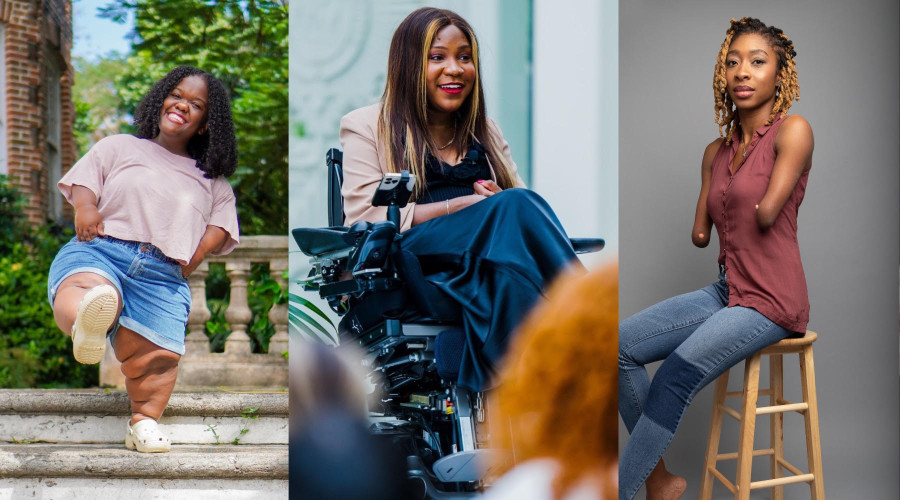
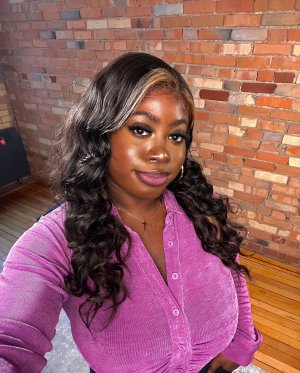 By
By 




